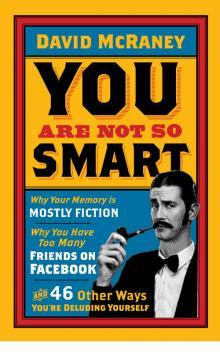More on this book
Community
Kindle Notes & Highlights
Read between
July 8 - July 29, 2018
you tend to look for information that confirms your beliefs and ignore information that challenges them. This is called confirmation bias.
Andrei Petre liked this
Your opinions are the result of years of paying attention to information that confirmed what you believed, while ignoring information that challenged your preconceived notions.
People like to be told what they already know.
When you learn things you wish you had known all along, you go ahead and assume you did know them.
The human mind is generated by a brain that was formed under far different circumstances than the modern world offers up on a daily basis. Over the last few million years, much of our time was spent with fewer than 150 people, and what we knew about the world was based on examples from our daily lives. Mass media, statistical data, scientific findings—these things are not digested as easily as something you’ve seen with your own eyes.
The more people who witness a person in distress, the less likely it is that any one person will help.
amateurs are far more likely to think they are experts than actual experts are. Education is as much about learning what you don’t know as it is about adding to what you do.
Yet the time it takes to go from novice to amateur feels rapid, and that’s where the Dunning-Kruger effect strikes. You think the same amount of practice will move you from amateur to expert, but it won’t.
When you get into an argument about either something personal or something more public and abstract, you sometimes resort to constructing a character who you find easier to refute, argue, and disagree with, or you create a position the other person isn’t even suggesting or defending. This is a straw man.


